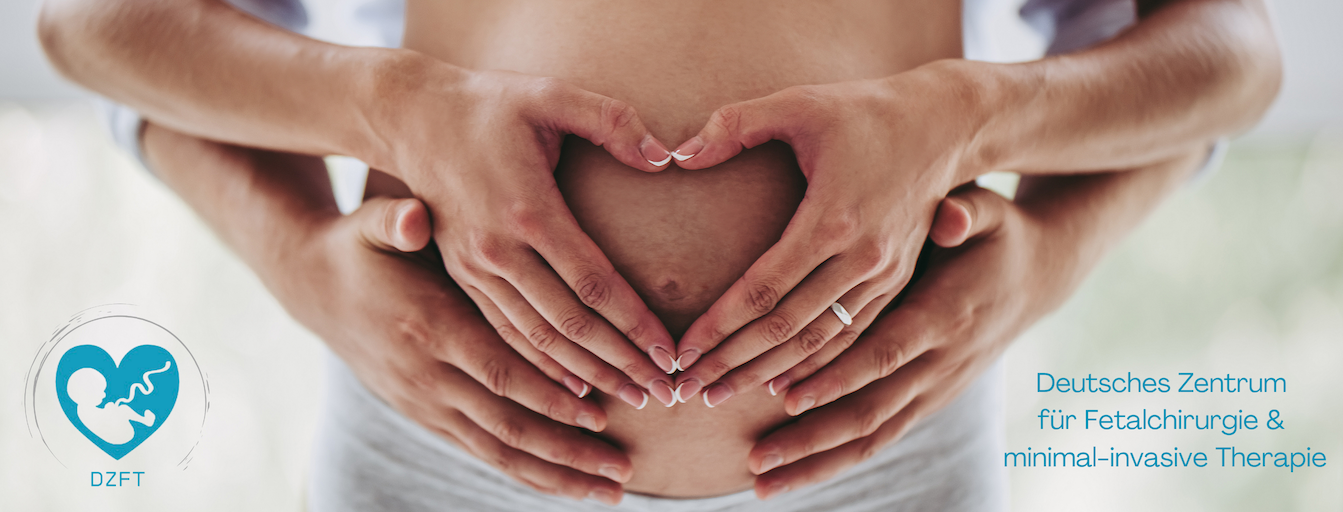In some unborn babies, routine ultrasound examinations reveal that there is little or no amniotic fluid (anhydramnios). This is usually caused by a rupture of the amniotic sac, resulting in a loss of amniotic fluid that can be detected as vaginal bleeding (vaginal amniotic fluid leakage). In rare cases, the loss of amniotic fluid may go unnoticed if the fluid is absorbed directly by the uterine wall through a hole in the amniotic sac that is far from the cervix (high rupture of the membranes).
If anhydramnios is diagnosed and there is no vaginal discharge of amniotic fluid, the fetus’s kidneys and bladder should always be examined. It is recommended that you consult a specialist practice or center for this.
Highly suspicious signs of a causal kidney disease include an empty bladder, a flaccid and at the same time slightly enlarged bladder, significantly enlarged or too small kidneys, kidneys with cysts, conspicuously light-colored kidneys, or the complete absence of kidneys (bilateral renal agenesis).
What can I do if my child has no functioning kidneys or no kidneys (renal agenesis) and I want to save my child’s life?
In Germany, for more than fifteen years, it has been possible to perform renal replacement therapy (postnatal peritoneal dialysis) in cases where a newborn with kidney disease has no or insufficient urine production in the first days of life.
For this reason, the DZFT was the first treatment center to systematically include postnatal peritoneal dialysis in its plans for continuing prenatal treatment of newborns with potential renal insufficiency.
Since most unborn babies who are candidates for peritoneal dialysis have not excreted urine for several months before birth, without prenatal therapy they would suffer life-threatening underdevelopment of their lungs. Approximately 90% of unborn babies with several months of amniotic fluid deficiency who are not treated prenatally for lung underdevelopment would die.
To halt this progression and achieve adequate lung function in the infant for postnatal peritoneal dialysis, the DZFT has developed a baby lung rescue strategy. This involves maintaining the size and function of the fetal lungs with repeated amniotic fluid replenishment and, in some cases, the use of a fetoscopically placed tracheal balloon (FETO).
The chances of survival for children at risk of lung hypoplasia can be increased to over 80 percent through serial amniotic fluid replenishment alone. We would be happy to advise you on your individual case and put you in touch with other families.
As part of postnatal renal replacement therapy for children, we work with the team of Prof. Dr. med. Franz Schäfer at Heidelberg University Hospital.
Patient comfort and safety are our top priorities
All prenatal amniotic fluid replenishment procedures are performed from the 20th week of pregnancy after administration of a painkiller, under local anesthesia, and with antibiotic prophylaxis. Tracheal balloon occlusion (FETO) is performed under general anesthesia for both mother and child.
Thanks to these measures, the technical success rate at our center is well over 90%, even under very difficult conditions. No procedure-related infections have been observed. In addition, bladder rupture, fetal complications, and infections are less common. The stress caused by the procedure for both mother and child is also reduced to a minimum. In our opinion, this is an indispensable advantage, especially in the case of repeated procedures.
As incredible as it may sound, pain management for mothers and children and infection prevention through procedures performed in a dedicated operating room with the administration of antibiotics are still not standard practice for prenatal procedures in Germany! Please consider these important factors when choosing your treatment center!
If you have any further questions about minimally invasive treatment of prenatal urinary tract or kidney diseases or would like to obtain a second opinion, please contact the DZFT daily between 10 a.m. and 5 p.m. on 0175/597-1213 or send us an email.
If you only reach the answering machine, please leave your name and a phone number where we can call you back.
If you have already decided to have a procedure performed at another clinic, we will be happy to advise you in this case as well and offer a prognostic second opinion on your child’s condition and treatment.
